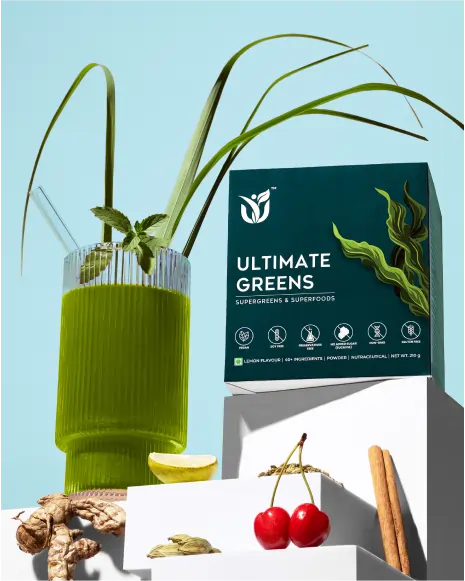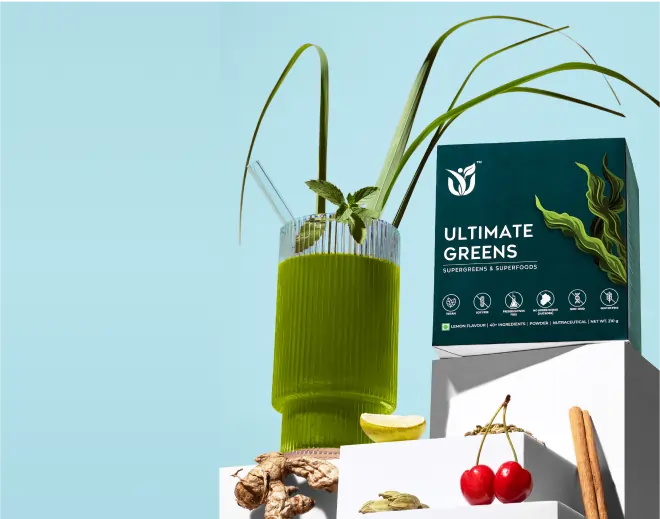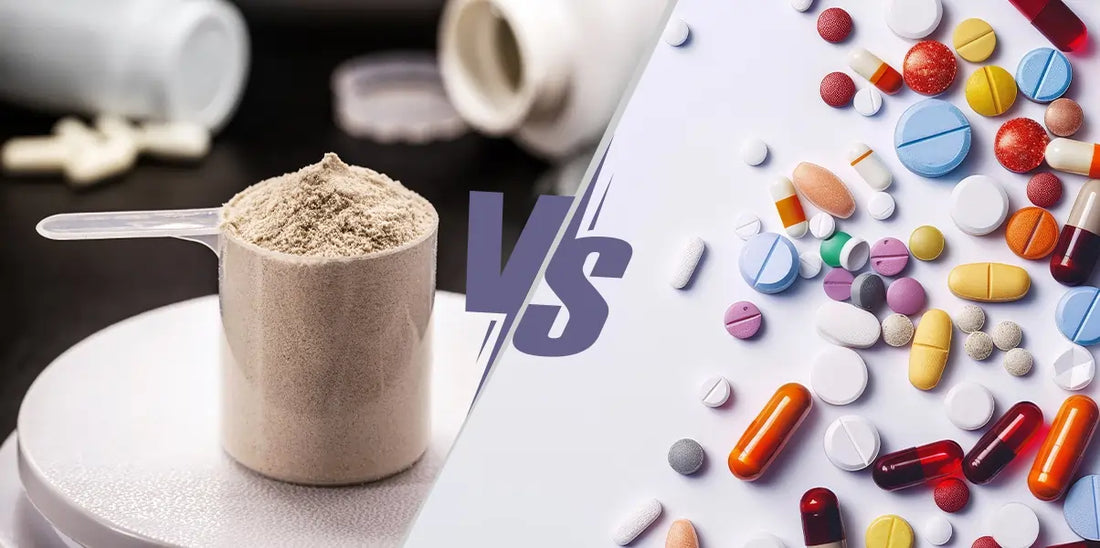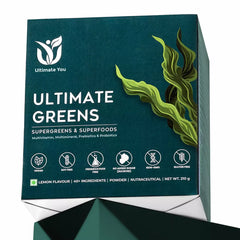Nutraceuticals blend nature and science, offering targeted solutions for immunity, hormones, and gut health—without the harsh side effects of pharmaceutical drugs.
From collagen supplements to herbal teas for sleep and probiotics for digestion—nutraceuticals are becoming the go-to solution for millions worldwide. Once considered niche or “alternative,” they now sit at the intersection of food, medicine, and lifestyle.
But what’s fueling this shift?
Why are people moving away from traditional pharmaceuticals and embracing nutraceuticals with such enthusiasm?
Let’s explore the growing popularity of nutraceuticals, the science behind them, and why they’re becoming a key player in the future of health and wellness.
What Are Nutraceuticals?
The term “nutraceutical” is a blend of nutrition and pharmaceuticals. Coined by Dr. Stephen DeFelice in 1989, it refers to any food or supplement that offers medical or health benefits—including the prevention and treatment of disease.
Nutraceuticals include:
1) Dietary Supplements
These are concentrated sources of nutrients or other substances with a nutritional or physiological effect. They are intended to supplement the normal diet and are available in various forms like capsules, tablets, powders, or liquids.
Examples
-
Omega-3 Capsules: Rich in essential fatty acids (EPA and DHA) that support heart health, brain function, and reduce inflammation.
-
Biotin: A B-vitamin that supports hair, skin, and nail health. It also plays a role in metabolism.
-
Ashwagandha: An adaptogenic herb used to reduce stress and anxiety, improve energy levels, and enhance overall well-being.
Purpose: To fill nutritional gaps, support specific bodily functions, or enhance general health and wellness.
2) Functional Foods
These are foods that provide health benefits beyond basic nutrition. They often contain added ingredients like vitamins, minerals, fiber, probiotics, or plant extracts.
Examples
-
Fortified Juices: Orange juice enriched with calcium and vitamin D to support bone health.
-
Protein Bars: Convenient snacks with high protein content to support muscle repair and satiety.
-
Probiotic Yoghurt: Contains live cultures like Lactobacillus and Bifidobacterium, which support digestive health and boost the immune system.
Purpose: To promote optimal health and reduce the risk of chronic diseases through regular consumption of everyday foods enhanced with beneficial components.
3) Herbal Products
These are preparations made from plants or plant extracts that are used for their medicinal or therapeutic properties. They can come in forms like teas, powders, capsules, or tinctures.
Examples
-
Turmeric: Contains curcumin, known for its anti-inflammatory and antioxidant properties. Many studies have been shown to support hormonal balance by acting as a modulator of endocrine function.
-
Moringa: A nutrient-dense plant used for boosting immunity, energy, immunity, and reducing blood sugar levels.
-
Ginseng: Known to improve energy, focus, and immune function; often used as a general tonic.
Purpose: To use natural plant compounds to support health, often based on traditional medicine systems like Ayurveda or Traditional Chinese Medicine.
4) Medicinal Foods
These are specially formulated foods intended for dietary management of specific medical conditions. They are typically used under medical supervision.
Examples
-
Diabetic Formulas: Meal replacements or shakes with controlled carbohydrate levels to help manage blood sugar.
-
Malnutrition Support: Nutrient-dense supplements designed for elderly or chronically ill patients with difficulty meeting their nutritional needs.
-
PKU Formulas: Special low-protein foods for individuals with phenylketonuria (PKU), a genetic disorder affecting protein metabolism.
Purpose: To assist in managing health conditions that cannot be treated effectively with regular diets alone. These products are part of a medical treatment plan.
Unlike pharmaceuticals, which are designed to treat or cure diseases, nutraceuticals are often focused on preventing health problems and supporting overall well-being.
Pharmaceuticals vs. Nutraceuticals: Key Differences
While pharmaceuticals are life-saving and essential in many cases, they’re increasingly being reserved for acute conditions or emergencies. For everyday wellness, more people are reaching for natural alternatives.
1. The Rise of Preventive Health Culture
One of the biggest reasons behind the shift is the growing global interest in preventive health. Instead of waiting for illness to strike, people are actively seeking ways to stay healthy, energized, and resilient.
Nutraceuticals are perfect for this mindset. They’re often used for:
- Boosting immunity
- Supporting hormonal balance
- Improving gut health
- Enhancing cognitive function
- Preventing chronic conditions
In a 2023 survey by the Council for Responsible Nutrition (CRN), over 75% of supplement users cited “overall health and wellness” as their top reason for using nutraceuticals.
2. Side Effects
While pharmaceuticals are essential for many health conditions, they often come with side effects that range from mild to severe:
- Nausea
- Drowsiness
- Hormonal imbalances
- Liver or kidney stress
- Dependency or withdrawal issues
This has led to growing distrust or hesitancy among consumers, especially for long-term or preventive use.
For instance:
- Long-term use of NSAIDs(non-steroidal anti-inflammatory drugs) like ibuprofen can damage the gut lining.
- Antibiotics can disrupt the microbiome.
- Hormonal medications may interfere with natural cycles.
Nutraceuticals, on the other hand, tend to be gentler on the body. For example, magnesium supplements can support sleep and anxiety with fewer side effects than prescription sleep aids or SSRIs.
3. Natural, Plant-Based, and Holistic Trends
We’re in the middle of a clean-label revolution—where people care deeply about what goes into their bodies. From skincare to food, the demand for natural, organic, and plant-based products is booming. Health supplements are no exception.
Nutraceuticals often tap into traditional medicine systems like Ayurveda, Traditional Chinese Medicine, and naturopathy. Ingredients like:
- Ashwagandha for stress and energy
- Turmeric (curcumin) for inflammation
-
Amla for hair, skin and immunity
- Fenugreek seeds prevents premature graying
These time-tested botanicals appeal to those looking for holistic, long-term wellness rather than quick fixes.
4. Mental Health and Adaptogens
The pandemic accelerated conversations around mental health, and people began exploring safer, natural alternatives to manage mood, anxiety, and burnout.
Adaptogens—herbs and plants that help the body adapt to stress—became mainstream. Some of them include:
-
Rhodiola: enhances focus and energy levels
-
Ashwagandha: reduces cortisol and supports adrenal health
-
L-theanine: promotes calm without sedation
- Inositol: supports serotonin balance, especially in women with PCOS or anxiety
These nutraceuticals provide gentle support, without the sedative or addictive risks associated with some psychiatric drugs.
5. Gut Health and the Microbiome Revolution
Science has revealed that gut health is central to immunity, mood, hormone regulation, and even skin health. This knowledge has fueled the probiotic and prebiotic boom.
Instead of using antibiotics that disrupt the microbiome, people now turn to:
-
Prebiotics and probiotics work together to support gut health by maintaining a balanced gut microbiome.
- Digestive enzymes are proteins that help break down food into nutrients, aiding in efficient digestion and nutrient absorption.
- Fermented foods are naturally preserved foods rich in probiotics, created through fermentation processes that enhance gut health and digestion.
These gut-focused nutraceuticals are seen as more restorative than pharmaceutical interventions.
6. Personalization and Lifestyle Integration
A major driver of the nutraceutical boom is the rise of personalized health solutions. Consumers can now take online quizzes to receive customized supplement stacks, use wearables and health apps to monitor nutrient levels, and even access DNA-based nutrition advice.
7. Over-the-Counter Convenience
Pharmaceuticals often involve multiple steps before use, including doctor’s appointments, prescriptions, and more. This process can be time-consuming and expensive, making access more limited and often reserved for diagnosed medical conditions.
Nutraceuticals, on the other hand, are widely accessible both online and in stores. They are more affordable, easy to order or subscribe to, and don't harm much.
8. Increasing Scientific Backing
In the past, nutraceuticals were seen as alternative or unproven. That’s changing—fast.
More scientific studies are showing that some nutraceuticals really work. For example, omega-3 fatty acids can help lower swelling in the body and support brain health. Curcumin, which comes from turmeric, has been shown to help with joint pain and protect the body from damage.
Peer-reviewed studies from journals like Nutrients, The Journal of Clinical Endocrinology & Metabolism, and Frontiers in Nutrition are building trust in the nutraceutical space.
9. Market Growth and Global Trends
The nutraceutical industry is booming. As per the Global Market Insights, the nutraceuticals market was valued at over $400 billion in 2023, with projections to reach $750 billion by 2030.
Categories like women’s health, beauty-from-within, gut health, sports nutrition, and cognitive support are growing rapidly.Influencers and wellness experts are driving visibility on platforms like Instagram, YouTube, and health podcasts.
Consumers are more informed and empowered than ever, and they’re choosing prevention over prescription.
10. Pharmaceuticals Still Matters!
This isn’t an “either-or” conversation. Pharmaceuticals have their place, especially for:
- Acute conditions
- Severe infections
- Emergency care
- Life-saving interventions
However, for everyday energy, mood, skin, sleep, digestion, and hormonal balance, nutraceuticals offer a gentler, proactive approach.
Integrative medicine—where supplements and lifestyle changes are used alongside pharmaceuticals—is the future. It acknowledges that healing isn’t just about symptom management but about supporting the whole person.
Conclusion
Nutraceuticals are gaining popularity not just because of clever marketing, but because they align with how people want to live today—naturally, holistically, and proactively.
Whether you’re managing stress, balancing hormones, or optimizing digestion, nutraceuticals offer a promising path. Backed by science and inspired by nature, they represent a bridge between ancient wisdom and modern wellness.
As always, it’s important to choose quality supplements, backed by research and transparency. One must consult with a healthcare provider for personalized advice.
Disclaimer
The information provided is for educational purposes only and is not intended to be a substitute for medical treatment. If you're pregnant, nursing, taking medication, or have a medical condition, it's better to consult a healthcare professional. Ultimate You does not provide any guarantee regarding the accuracy, adequacy, completeness, legality, reliability, or usefulness of the information and disclaims any liability arising from it.

Ram Charan
Content Lead
With over 7 years of experience, he crafts engaging stories and compelling narratives. He believes crisp and engaging content adds value to customers and drives immense sales to businesses. When he's not working, you'll find him hanging out with friends, binge-watching movies, and exploring the world of organic foods.
Tags
- Choosing a selection results in a full page refresh.
- Opens in a new window.
15%

on your next order
By submitting your email address, you agree to receive marketing emails from Ultimate You at the email address provided. We may use information collected about you on our site to suggest the products and offers. you can withdraw your consent at any time by following the unsubscribe instructions in any email we send to you. view Terms and Privacy. Contact Ultimate Customer Care at #204-8430 Saint Monica Building, near Char Miner, Hyderabad, India, 203455.








